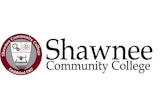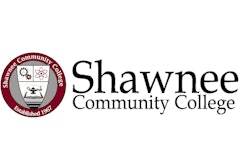BALTIMORE — As murders and overdoses threaten new records for bloodshed in Baltimore, the city’s mayor unveiled an update Wednesday to her violence prevention plan, describing new tools for police, more support for addicts and a promise of free community college for the city’s graduating high-schoolers.
Mayor Catherine Pugh also appointed Drew Vetter, who had been chief of staff at the Baltimore Police Department, to direct the Mayor’s Office of Criminal Justice, and named Kendra Parlock to run CitiStat, an office that collects and analyzes data.
Those numbers are grim: The city has seen 212 homicides this year, up roughly 18 percent from 2016. Some parts of the city are so dangerous that community members organized a 72-hour cease-fire last weekend, and the police department recently reassigned roughly 150 officers to street patrol.
“This is urgent,” Pugh said. “I can’t say it any louder, and I can’t say it any more often. We can drive down violence in this city, with the police department having the right tools, with the community having faith in their police department, and neighborhoods working together to move our city forward.”
Pugh had been alluding to her anti-violence plan recently, but critics said she wasn’t doing enough. Last week, roughly 200 community members gathered near the home of a 97-year-old WWII veteran who was murdered, and called on her to release the plan she campaigned on.
Pugh said she’s been implementing this plan – which addresses public safety, public health, youth engagement and long-term goals – since she took office in January.
She said she’s been working with consultants affiliated with the U.S. Department of Justice, which entered into a consent decree with the city and its police department to implement sweeping reforms after a federal investigation revealed longstanding patterns of abuse and discriminatory practices.
The policing part of the mayor’s plan involves freeing up uniformed officers to patrol the streets by hiring civilians to do administrative work. Training on the proper use of body cameras is being expanded, and the department is using a $2 million state grant to equip patrol cars with mobile data terminals. This should enable officers to file reports electronically, streamlining their bureaucratic work and keeping them on the streets.
Pugh emphasized that many of these programs and priorities are already in motion, reflecting an ongoing process of developing strategies to combat violence. Some parts, such as installing more street lights in underserved neighborhoods, are already underway.
Pugh’s plan also calls for expanded homeless and substance abuse services. The city will soon open a stabilization center for adults suffering from addiction, and plans to increase the availability of Naloxone, a drug that reverses the effects of an opioid overdose. Deaths from drug and alcohol overdoses were up 55 percent in the city in the first three months of this year.
And beginning in 2018, Baltimore students graduating from the city’s public high schools will be able to attend community college in the city for free, earning a two-year degree or certificate. The mayor said this initiative will cost roughly $1.5 million. The city also is expanding a summer job program for students, investing in new recreation centers and proposing alternatives to jail for juvenile offenders.









